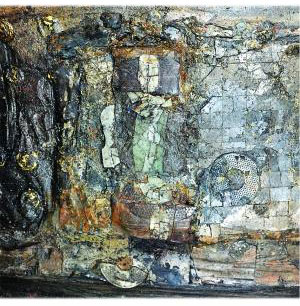Glazed mat, sunflower seeds discovered at ancient tomb
- By Wu Jin
 0 Comment(s)
0 Comment(s) Print
Print E-mail China.org.cn, May 11, 2016
E-mail China.org.cn, May 11, 2016
The groundbreaking discovery of the mausoleum by national archaeologists in 2011 has continuously brought new surprises to the public. The most recent finding inside Liu's coffin was a number of boxes with tops covered in gold foil. The boxes contained combs, cosmetics and personal decorations.
In addition to the boxes, a knife tied to the waist of Liu's corpse, used for writing on bamboo scrolls before the invention of Chinese brushes and papers, was also found. Many archaeologists have taken the knife as a testimony to Liu's status as a well-educated man.
However, the most astonishing discovery is probably the well-preserved sunflower seeds spotted in Liu's chest, esophagus and stomach.
The archaeologists cannot yet explain why the sunflower seeds have stayed so well-preserved inside the man's body, as he died more than 2,000 years ago.
"Further studies are needed to understand the existence of the sunflowers seeds," said Li.







Go to Forum >>0 Comment(s)